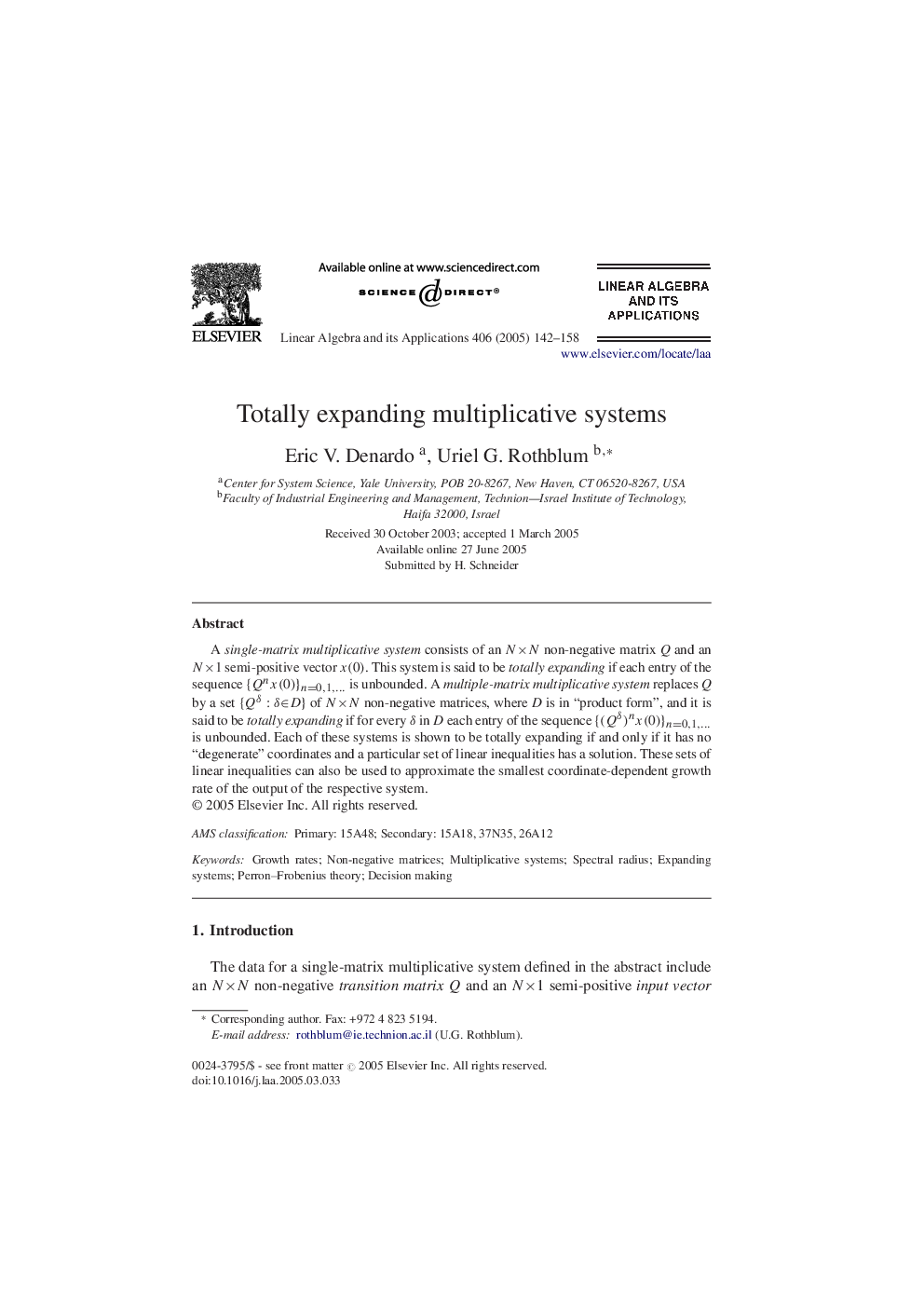| Article ID | Journal | Published Year | Pages | File Type |
|---|---|---|---|---|
| 9498311 | Linear Algebra and its Applications | 2005 | 17 Pages |
Abstract
A single-matrix multiplicative system consists of an N Ã N nonnegative matrix Q and an N Ã 1 semi-positive vector x(0). This system is said to be totally expanding if each entry of the sequence {Qnx(0)}n=0,1, ⦠is unbounded. A multiple-matrix multiplicative system replaces Q by a set {Qδ:δ â D} of N Ã N nonnegative matrices, where D is in “product form,” and is said to be totally expanding if for every δ in D each entry of the sequence {(Qδ)nx(0)}n=0,1, ⦠is unbounded. Each of these systems is shown to be totally expanding if and only if it has no “degenerate” coordinates and a particular set of linear inequalities has a solution. These sets of linear inequalities can also be used to approximate the smallest coordinate-dependent growth rate of the output of the respective system.
Related Topics
Physical Sciences and Engineering
Mathematics
Algebra and Number Theory
Authors
Eric V. Denardo, Uriel G. Rothblum,
